Penn Today

Making ‘true’ equine IVF a reproducible success (link is external)
A new method developed by Katrin Hinrichs and colleagues in the School of Veterinary Medicine resulted in the birth of three healthy foals. The technique opens the door to new…
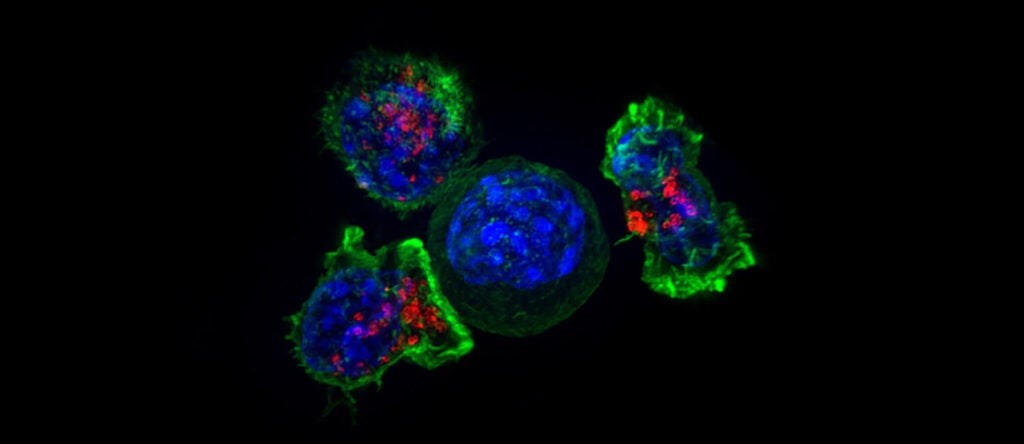
T cells that ‘nibble’ tumors unwittingly help cancer evade the immune response (link is external)
Penn Vet have uncovered a detailed mechanism by which tumors can skirt both the immune system and cancer therapies that leverage its power.

Cooler temps and northern climes associated with increased diabetes diagnoses in dogs (link is external)
Mirroring a finding in humans, diabetes diagnoses in dogs were more common in colder areas of the U.S. and during winter, according to a new study led by Penn Vet…
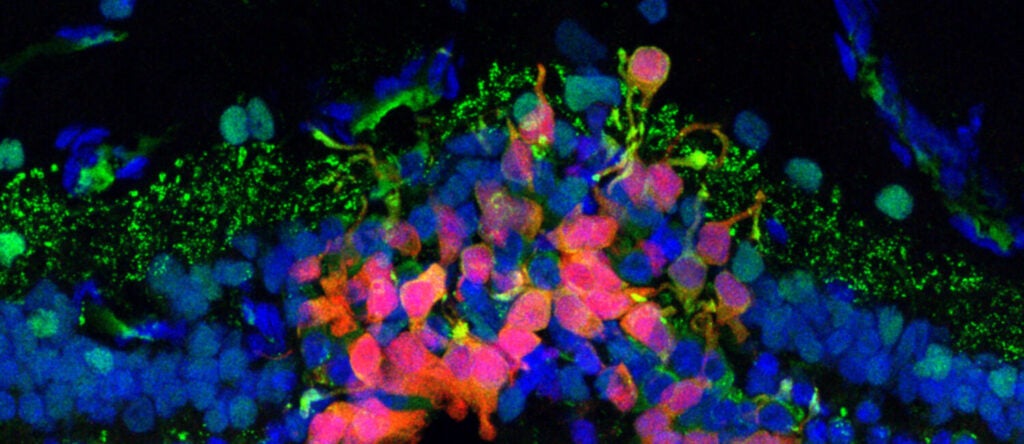
Progress toward a stem cell–based therapy for blindness (link is external)
A multi-institutional effort led by researchers at Penn Vet is taking steps to develop an effective technique to regenerate photoreceptors cells and restore sight in people with vision disorders.
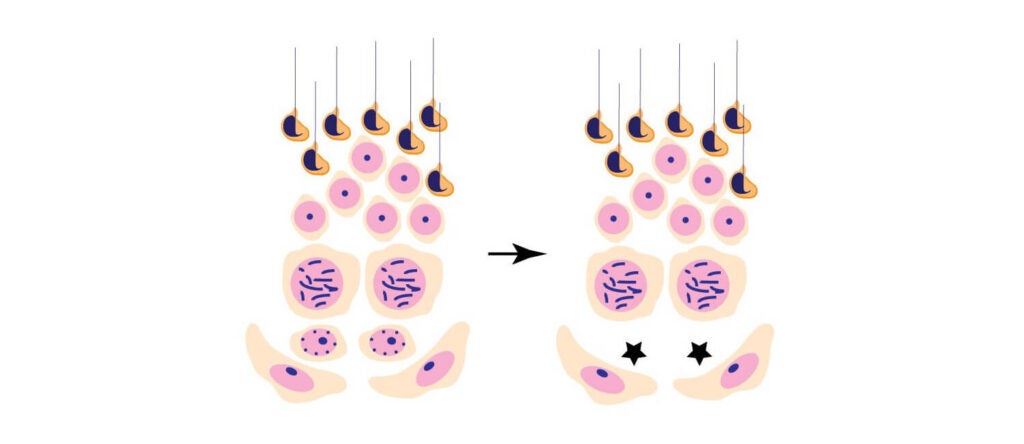
A newly identified stem cell regulator enables lifelong sperm production (link is external)
Research led by Dr. Jeremy Wang has discovered that the enzyme DOT1L, a stem cell renewal factor, is essential for mice to produce sperm throughout their adult lives.
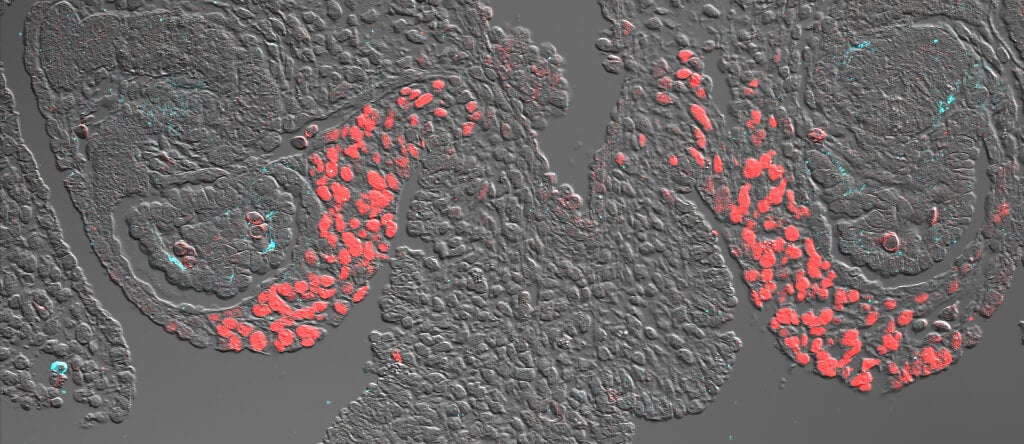
Elucidating the developmental origin of life-sustaining adrenal glands (link is external)
Research led by the School of Veterinary Medicine reveals that adrenal development proceeds differently in humans than it does in mice.
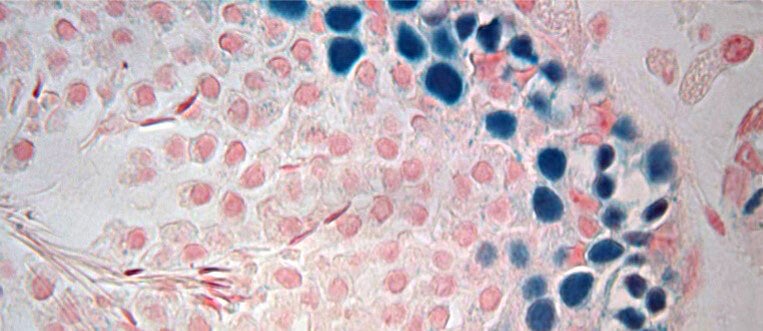
Frozen testicular tissue still viable after 20 years (link is external)
A new study in rats has shown that male testis tissue that is cryopreserved can be reimplanted after more than 20 years and will go on to make viable sperm.

In the Galápagos, training community scientists to monitor water quality (link is external)
Both dense human populations and a plethora of wildlife can pose a challenge to marine and public health in the Galápagos Islands. With portable, user-friendly PCR technology, Penn faculty and…
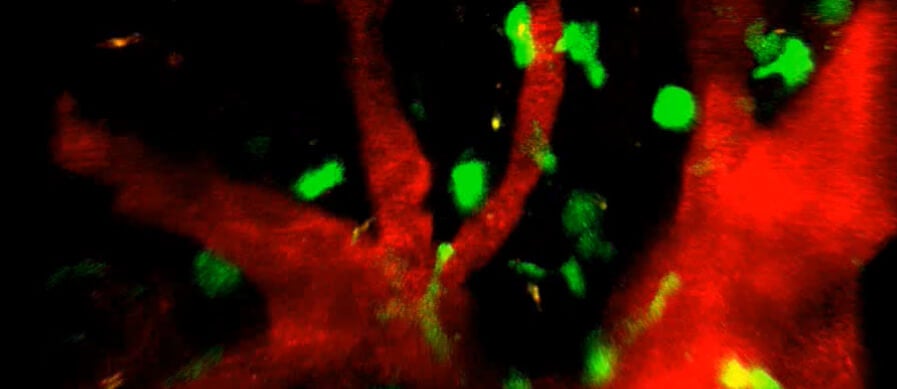
Regulating the regulators of the immune system (link is external)
Research led by Penn Vet scientists reveals a new layer of complexity with which the immune system finds a balance between controlling pathogens and protecting healthy tissue.
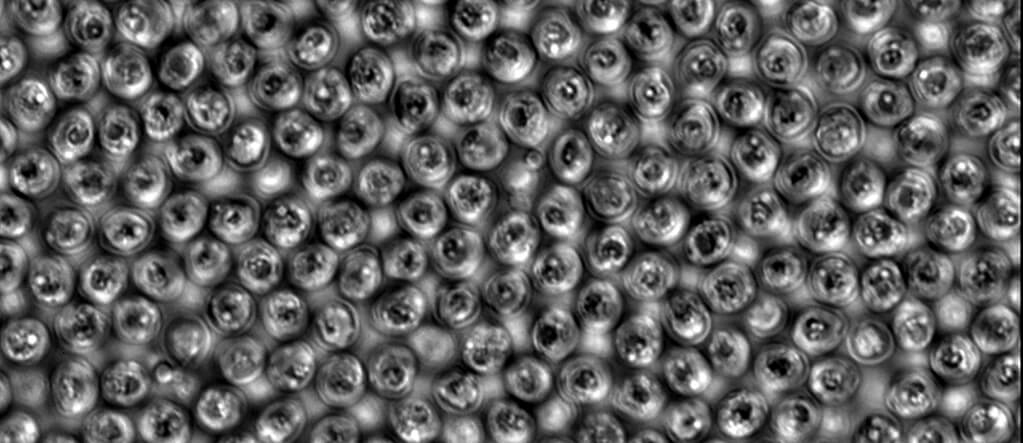
Revising the lifecycle of an important human parasite (link is external)
Researchers from Dr. Boris Striepen’s lab tracked Cryptosporidium in real time, creating a new paradigm for how the widespread parasite reproduces in a host.
Sort By
- Research Laboratories (1)
- ASMG Laboratory - Microbial Genomics (2)
- Lengner Laboratory (2)
- Anguera Laboratory (4)
- Wang Laboratory (3)
- Puré Laboratory (1)
- Wolfe Laboratory (1)
- Lennon Mucosal Immunology Laboratory (1)
- Equine Pharmacology Research Laboratory (1)
- Dou Laboratory (1)
- Brinster Laboratory of Reproductive Physiology (1)
- Hunter Laboratory (3)
- Harty Laboratory (3)
- Mason Immunotherapy Research Laboratory (2)
- Sunyer Laboratory (1)
- Scott Laboratory (1)
- Vaughan Laboratory (1)
- Research Institutes (4)
- Research Programs (1)
- Research Centers (1)
